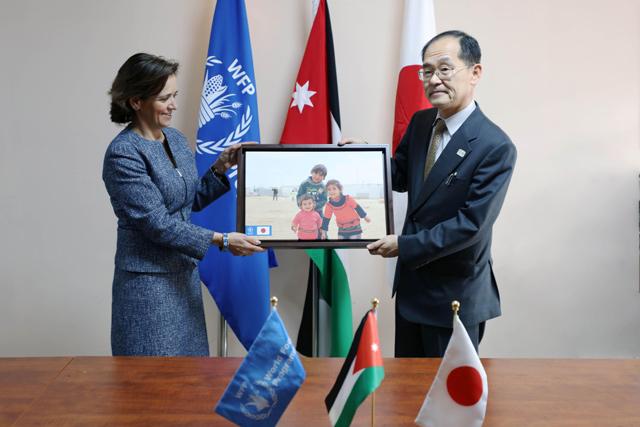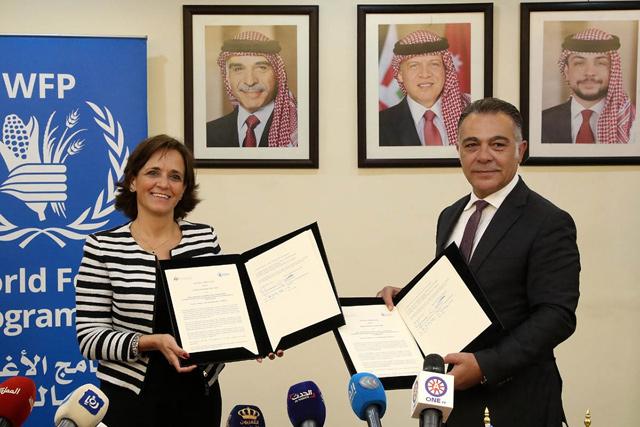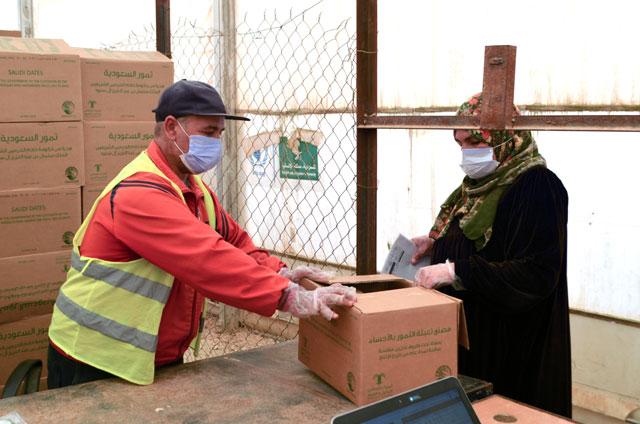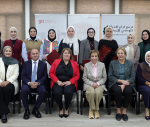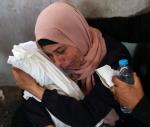You are here
‘WFP works with national entities to strengthen Jordan’s refugee care’
By JT - Jan 04,2020 - Last updated at Jan 04,2020
AMMAN — One in 10 people in Jordan received some form of support from the UN World Food Programme (WFP) in 2019, either through cash-based transfers, which allow refugees to cover food and other basic needs, or through school feeding programmes and livelihood activities that support both vulnerable Jordanians and refugees.
“All over the world, WFP works on a large scale, and here in Jordan, it is no different,” said WFP Country Director and Representative Sarah Gordon-Gibson in a WFP statement.
“We ensured food and nutrition security for 1.1 million people, around half of them Jordanians and half refugees. Of course, this would not be possible without the support of our donors and our strong partnership with the government, UN agencies and NGOs,” she added.
Every month, 480,000 refugees receive an amount of money to buy food or cover other expenses, the statement said, adding that this programme alone injected more than JD115.6 million into the Jordanian economy during 2019.
The vast majority of those receiving food assistance are Syrian refugees, but the programme also extended its aid to around 13,000 refugees from other countries, including Somalia, Yemen and Sudan.
In partnership with the Ministry of Education, the school feeding programme provides daily healthy snacks to 419,000 school children. These include refugee children living in Zaatari and Azraq camps, as well as Jordanian children in schools across the Kingdom, the statement noted.
The programme distributed over 7.4 million school meals and 33.7 million date bars, helping improve children’s nutrition, boost their attendance and enhance their concentration on schoolwork. The programme also created job opportunities for over 750 Jordanian and refugee workers, most of them women, through a network of 17 “healthy kitchens”, where the school meals are prepared, according to the statement.
WFP has a longstanding partnership with the Ministry of Agriculture to deliver resilience and livelihood support. Through this partnership, 45,000 trees were planted in 2019 and jobs were created for more than 800 people. WFP also supported the ministry’s National Olive Festival in November, providing hundreds of small producers with a place to sell their produce.
In addition to directly supporting people in need, WFP provides technical support to the government to help develop the systems and processes to build food security, resilience and social protection in the longer term, the statement said.
“WFP has worked extremely closely with a range of government departments and ministries over the course of the last year,” said Gordon-Gibson.
“This work included supporting the National Aid Fund to digitise its payment systems and supporting the Department of Statistics to improve data collection and analysis related to food security in Jordan. We will be strengthening these partnerships even further in 2020 as we increasingly prioritise activities that strengthen national capacities,” she added in the statement.
“A lot of excellent work has been done together with our partners, and we very much look forward to building on this over the next year and, indeed, over the next decade.”
Related Articles
AMMAN — The government of Japan has given $1.6 million to the UN World Food Programme (WFP) to support vulnerable Jordanians and refugees, a
AMMAN — Minister of Planning and International Cooperation Wissam Rabadi and United Nations World Food Programme (WFP) Country Director and
AMMAN — The United Nations World Food Programme (WFP) and its partners are distributing Saudi dates to 236,000 refugees and vulnerable Jorda


